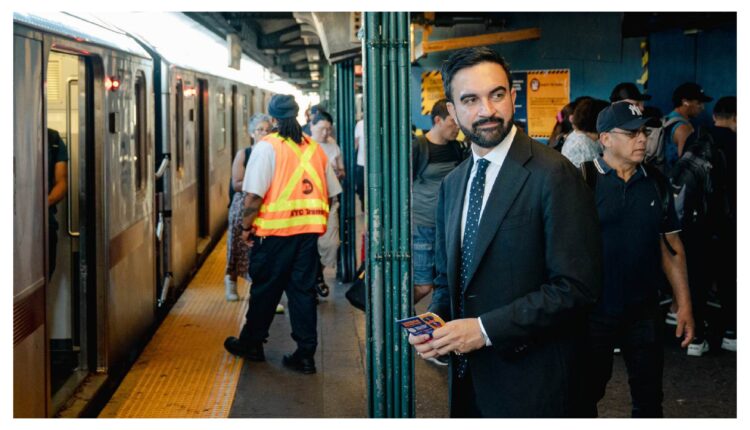Zohran Mamdani’s Car-Free Vision: What Smog-Hit Pakistan Can Learn from New York
When Zohran Mamdani became the mayor of New York City on November 5, 2025, the world celebrated a historic first: a Muslim leading America’s largest city.
But what’s turning heads is something more personal: Mamdani doesn’t own a car.
In a city full of iconic yellow taxis and endless traffic, Mamdani’s choice to rely solely on public transport isn’t a stunt. It’s a statement.
“Too often, if you’re riding around only in a car, the only New Yorker you might see is a reflection of yourself,” he told Wired.
By commuting through the same buses, subways, and bike lanes as millions of New Yorkers, Mamdani’s message is clear: cities work better when mobility serves everyone — not just car owners.
His Call: From Car Ownership to Collective Mobility
Mamdani’s “car-free” lifestyle reflects his broader political philosophy, one that prioritises accessibility, clean air, and livable cities over car-centric development.
He’s been pushing for:
- Free and faster public buses to make urban transport more equitable.
- Protected bike lanes and pedestrian-first planning to cut congestion.
- A shift in culture from viewing cars as status symbols to treating mobility as a shared public right.
He isn’t anti-car, he’s pro-choice, urging city dwellers to rethink unnecessary car dependency. His goal is simple: fewer cars, less congestion, cleaner air.
Pakistan Can Learn a Thing or Two
Every winter, Lahore, Karachi, and Faisalabad are blanketed in thick smog.
Air Quality Index (AQI) readings often exceed 400-500, prompting school closures and health advisories.
Vehicular emissions are among the main culprits. Pakistan adds nearly 3 million new vehicles to its roads every year, with limited regulation and low-grade fuel making the problem worse.
Mamdani’s personal stand in New York poses a timely question for Pakistan:
If one of the world’s busiest mayors can rely on public transport, why can’t our cities reduce vehicle overload and invest in greener mobility?
A Smarter Way Forward
Pakistan’s smog crisis can’t be solved overnight, but it can be eased with smarter mobility decisions.
Here’s what policymakers and citizens can learn from Mamdani’s example:
Public Transport First – Expand and modernise metro, bus, and rail systems so they become a real alternative to car ownership.
EVs for Those Who Can Afford Them – Hybrid and electric vehicles can drastically cut emissions for buyers who want private transport without the guilt.
Micro-Mobility and Walking – Safer bike lanes, pedestrian-friendly zones, and cleaner last-mile connectivity can transform how cities breathe.
Changing Pakistan’s Car Culture
In Pakistan, owning a car often equals prestige — the bigger the SUV, the higher the status.
But that mindset is suffocating our cities. With shorter daily commutes (most under 10 km) and skyrocketing pollution, it’s time to rethink what “modern” mobility means.
Going green doesn’t mean giving up your car — it means choosing smarter options.
If you’re in the market for your next car, explore hybrids and EVs that combine comfort with cleaner performance.
Find Eco-Friendly Cars Here: PakWheels Buy & Sell Cars
The Takeaway
Zohran Mamdani’s car-free lifestyle isn’t an anti-car crusade; it’s a blueprint for modern cities that prioritise people and air quality over gridlock.
For Pakistan, his leadership offers a simple truth: less pollution, more efficiency, and cleaner choices behind the wheel.
As smog season sets in, maybe it’s time we take a page from New York’s playbook — reduce unnecessary driving, invest in public transport, and make eco-friendly cars the norm, not the exception.
Because the road to cleaner air starts not with policies, but with everyday choices.



Comments are closed.